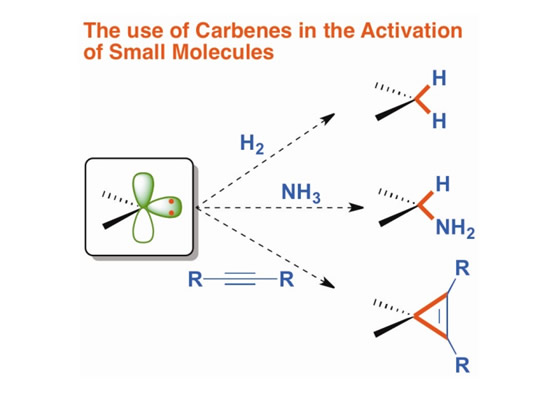Principal Investigator: Dr. Xiaoming Zeng
研究内容:1) 设计与合成新型的稳定卡宾;2) 发展基于卡宾配体的新型合成反应;3) 发展基于卡宾催化剂的有机小分子反应体系;4) 合成基于卡宾的受阻路易斯酸碱对,应用于催化有机反应。
Overview: Our research group aims to design and synthesize novel stable carbenes as ligands and organocatalysts in the development of new synthetic strategies to build up chemical bonds.
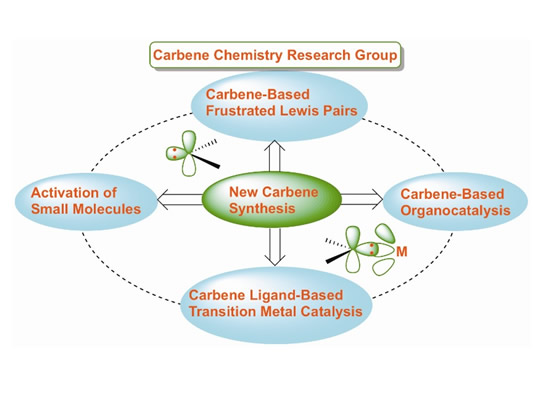
1. Synthesis of Novel Stable Carbenes
Carbenes are neutral compounds featuring a divalent carbon with one nonbonding orbital of p-symmetry and one of s-symmetry. Since Bertrand et al. isolated the first stable carbene, and then Arduengo characterized the X-ray crystal structure of free NHC, carbene chemistry expanded rapidly as evidenced by numerous applications ranging from homogeneous catalysis to material and medicinal science.
Owing to its structurally diversity, the construction of new carbenes should pay more attention to their stability, electronic properties, coordination behavior and the catalytic activities of the ensuing complexes. The synthetic targets in our group include cyclic heteroatom-stabilized cyclic(amino)(aryl)carbenes, boron-incorporated NHCs, heavier carbene analogues and chiral carbenes.
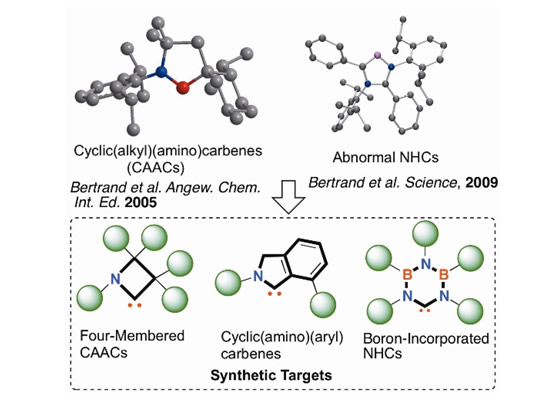
2. Carbene-Supported Nonrare Metal Catalysis
The C–C and C–heteroatom bond formations constitute the core stone of organic synthesis. Nonrare metals such as iron, cobalt, nickel and copper based on catalysis attracts a wide range of attention due to their inexpensive and low toxic properties toward sustainable development. Our research plans to develop carbene-supported nonrare transition metal complexes in the exploration of new reactions.
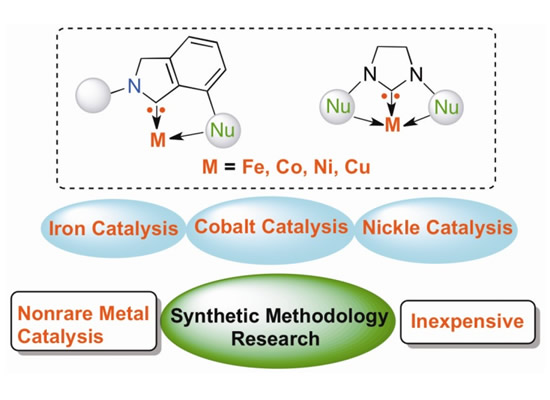
3. Carbene-based Frustrated Lewis Pair Synthesis
Frustrated Lewis Pairs (FLPs), that combines unquenched Lewis acidity and basicity into one single molecule, have been applied to activate small molecules such as hydrogen, alkynes, carbon dioxide, etc. Our research focuses on the use of carbenes acting as Lewis bases in the construction of FLPs toward developing new organocatalysis.
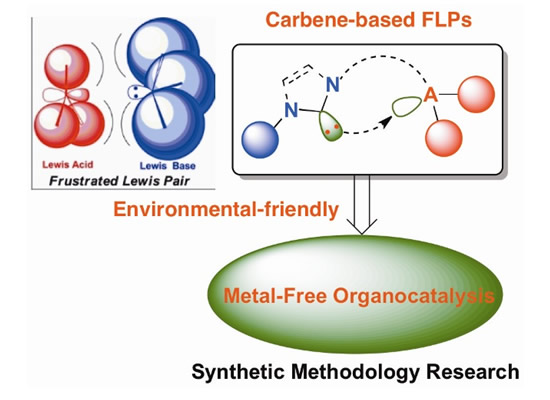
4. Carbene-base Organocatalysis
Chiral carbenes are of ubiquitous catalysts for asymmetric reactions. The construction of chiral carbenes in asymmetric catalysis is our mission for the development of synthetic methodologies.
5. Carbenes Activate Small Molecules
Activation of small molecules is highly desirable by the use of metal-free species. Synthesis of powerful carbene in the activation of small molecules such as hydrogen, ammonia, carbon monoxide, alkynes and olefins should be our research targets for the development of efficient organocatalysis strategies.
